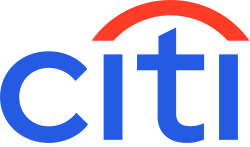Post Morgan Stanley and joining Citigroup (2006–2012)
In March 2006, Pandit and John Havens, along with Guru Ramakrishnan (former global head of trading, technology and new products in the equities group at Morgan Stanley), started the hedge fund Old Lane LLC. [24] Citi bought the company in 2007 for $800 million, bringing both Pandit and Havens into Citi leadership. [25] Citi named Pandit chairman and CEO of Citi Alternative Investments (CAI) unit and he later led Citi's Institutional Clients Group.
On 11 December 2007, Pandit was named the new CEO of Citigroup, replacing interim-CEO Sir Winfried Bischoff. Pandit was strongly supported by then interim chairman of Citigroup Robert Rubin, [26] the effective successor to Chuck Prince.
On 11 February 2009, Pandit testified to Congress that he had declared to his board of directors, "My salary should be $1 per year with no bonus until we return to profitability." [27] [28] He also struck an apologetic tone for letting the bank consider completing the purchase of a private jet plane after receiving some $45 billion in Troubled Asset Relief Program (TARP) funds. [29] His total 2009 compensation was $128,751, with a base salary of $125,001 and other compensation of $3,750. [30]
In January 2011, after working for two years for a salary of $1 a year, his annual base was raised to $1.75 million for the progress Citi made under Vikram's leadership. [30] [31] [32] After posting five consecutive quarterly profits, Citigroup in May 2011, announced $23.2m retention award to Pandit making him one of the highest paid CEOs. [33] [34] In April 2012, shareholders voted against increasing his pay to $15 million. About 55% of the votes cast were against the compensation package. [35]
His co-chairing of Davos 2012 was criticized, [36] with Mike Mayo, an analyst with Crédit Agricole in New York remarking: "What kind of signal does that send, that the bank that was the worst-performing in our country over the last decade and whose stock price is still down significantly since he took over, is the ambassador for our financial industry?" [37] At Davos 2012, Pandit said that Citigroup was going "back to the basics of banking" in response to public anger about the 2008 financial crisis, and argued that, "The single biggest issue facing us is the question of jobs," giving an estimate of 400 million jobs in the next 10 years. [38]
Resignation
On 16 October 2012, Pandit unexpectedly resigned as Citigroup CEO. [9] Michael Corbat, previously Citigroup's CEO of Europe, Middle East, and Africa, was named as his replacement. [39] While Pandit and the company maintain that he resigned, Bloomberg News cited anonymous board sources indicating that Pandit was forced out by the board after eroding investor confidence and damaging company relations with regulators over an extended period. [40] The New York Times later identified Chairman Michael E. O'Neill as the driving force behind a months-long secret effort to oust Pandit, which culminated in a surprise ultimatum to Pandit stating that he must resign immediately, resign at the end of the year, or be fired. [41] His resignation followed multiple payouts to investors during ongoing fraud allegations. [42] [43] [44]
Compensation
While CEO of Citigroup in 2007, Pandit earned an annualized compensation of $3,164,320, which included a base salary of $250,000, stocks granted of $2,914,320, and options granted of $0. [30] In 2008, he earned a total compensation of $38,237,437, which included a base salary of $958,333, stocks granted of $28,830,000, and options granted of $8,432,911. However, after adjusting for Citigroup's sunken share price, the package was worth just a few million dollars. [32] Pandit received $165 million for his hedge fund which was purchased by Citi in 2007. [45] The fund has since been closed. In 2012, Citigroup shareholders voted in favor of a non-binding resolution to reject a $15 million pay package for Pandit. In November 2012, Pandit was paid about $6.7 million. [46]

